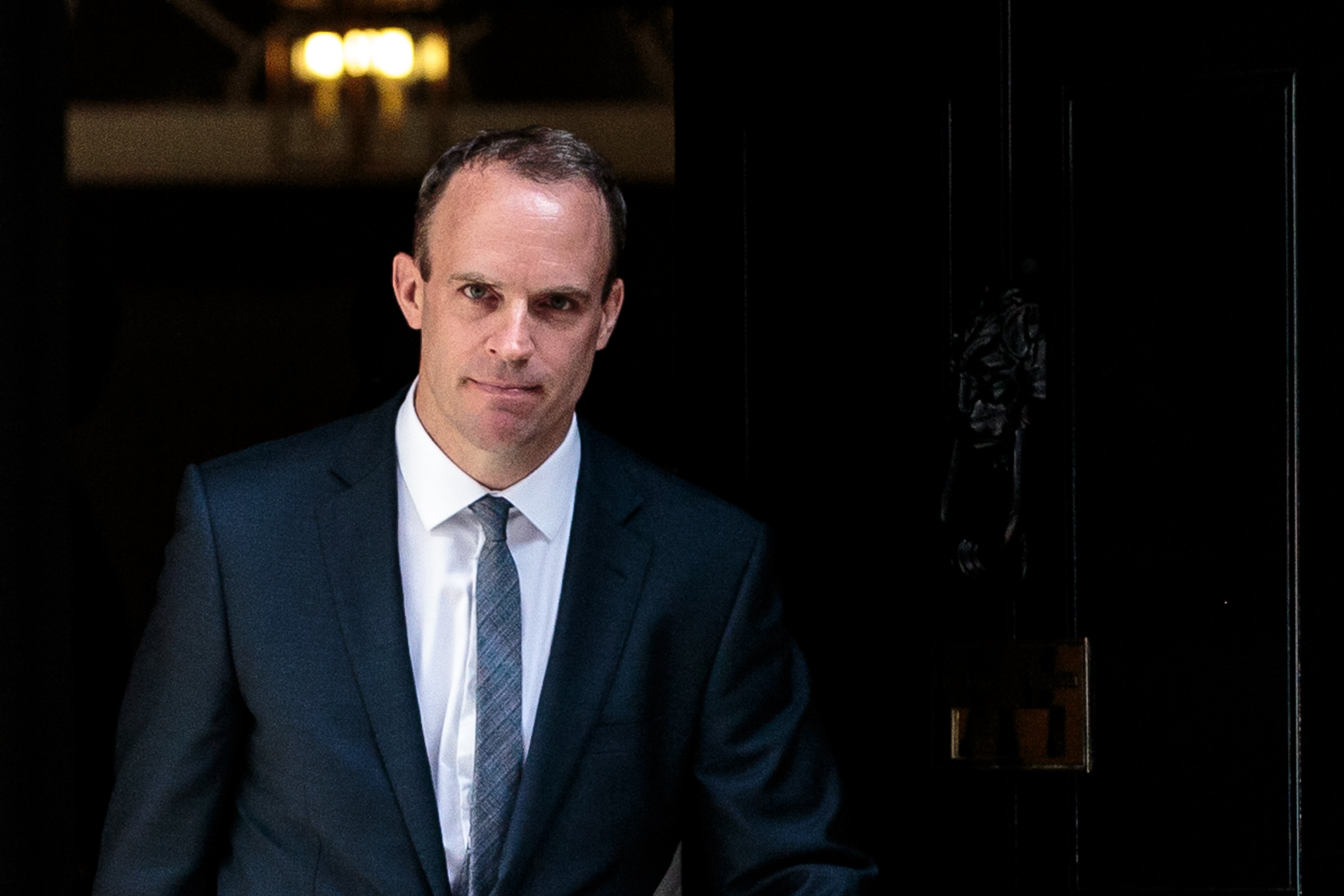Can Sunak reform the ‘culture of fear’ in his government – before it’s too late?
Ministers don’t have to shout and scream to get the best out of their civil servants – it’s counterproductive, writes Andrew Grice


In resigning from the cabinet after the inquiry into allegations he bullied civil servants, Dominic Raab jumped before he was pushed by his close ally Rishi Sunak.
Some ministers will feel sympathy for the former deputy prime minister and agree with his angry, bitter resignation letter which suggests he was driven out by Whitehall officials. The karate black belt went out kicking and screaming, with a parting chop at Antonia Romeo, his permanent secretary at the Ministry of Justice. Raab’s words do not read like those of someone hoping to return to government. For him, this is the end.
But we shouldn’t feel too sorry for Raab. Two complaints of bullying were upheld after a five-month investigation by Adam Tolley KC – a verdict Raab insists is “flawed”. Sunak had to judge Raab against the ministerial code of conduct.
As well as saying that bullying “will not be tolerated”, it adds: “Ministers should be professional in all their dealings and treat all those with whom they come into contact with consideration and respect. Working relationships, including with civil servants, ministerial and parliamentary colleagues and parliamentary staff should be proper and appropriate”. There was enough evidence to show that Raab did not act professionally.
The episode will raise questions about Sunak’s judgment in appointing Raab as justice secretary and deputy PM. But not as many as if he had tried to hang on to the ally who worked tirelessly in his leadership campaign against Liz Truss last summer, even when some rats jumped from a sinking ship.
Although the outcome is right, there are lessons from this saga that Sunak cannot afford to ignore. The system for complaints that ministers bully civil servants is not fit for purpose. Raab is right about one thing: it encourages officials to leak damaging stories to the media about ministers – a breach of the civil service code. But going to the media is a last resort for desperate officials who complain about a minister’s conduct to senior civil servants and find that nothing happens.
In his letter accepting Raab’s resignation, Sunak admits “shortcomings in the historic process that have negatively affected everyone involved” and that “we should learn from this how to better handle such matters in future”. But it is important that the right lessons are learned.
The system for complaints against ministers should reflect the recently tightened rules for staff who make bullying and harassment claims against MPs. The new independent complaints and grievance scheme means MPs no longer sit in judgment on their colleagues, although the most serious punishments still require approval in a Commons vote. The changes have created confidence in the system among MPs’ staff, as shown by a rise in the number of complaints.
The system for ministers is still based on the outdated idea that politicians are all “good chaps”. That is not good enough given the intense pressures, not least from the 24/7 media, under which today’s ministers operate.
Despite Raab’s claim that the threshold for bullying claims has now been set “so low”, many civil servants are reluctant to make a formal complaint about ministers. Officials know their minister will likely eventually discover their identity, as Raab did – a huge deterrent. If the minister is cleared, it might be impossible for an official to continue to work for them.
That so many complaints were made about Raab suggests there was no smoke without fire – not, as some Tory MPs claim, that civil servants who make such claims are "snowflakes"; or, as Raab suggests, politically motivated opponents of reform.
True, the survival or fall of a minister is bound to be a political judgment. But while the PM will ultimately be the judge, they should not also be the jury. The decision on whether to hold a full inquiry into a minister’s behaviour should be taken by his independent adviser on ministers’ interests (currently Laurie Magnus) rather than the PM. The adviser should then run the inquiry, with a panel of employment experts.
By reforming the rules, Sunak can ensure some good comes out of the damaging Raab affair. Morale in the civil service has improved since Sunak ended Johnson’s confrontational approach – he had a list of permanent secretaries to remove – and Liz Truss’ misguided attacks on a Whitehall “blob” she saw as part of her imaginary “anti-growth coalition”. But low morale remains a problem.
It is in ministers’ and the public interest to have highly motivated officials prepared to speak truth to power. They should not feel scared amid a “culture of fear”, which Raab was accused of overseeing. In my experience of 40 years as a Whitehall watcher, the vast majority of civil servants are politically neutral and committed to delivering what their political masters want.
Ministers don’t have to shout and scream to get the best out of them; it’s counterproductive. Ministers can be courteous while being demanding and thus effective: Michael Gove and Sunak himself are good examples.
There are bound to be more bullying allegations in future. Sunak must now reform the way they are handled if he is to deliver the "integrity, professionalism and accountability at every level”, he promised.






Join our commenting forum
Join thought-provoking conversations, follow other Independent readers and see their replies
0Comments